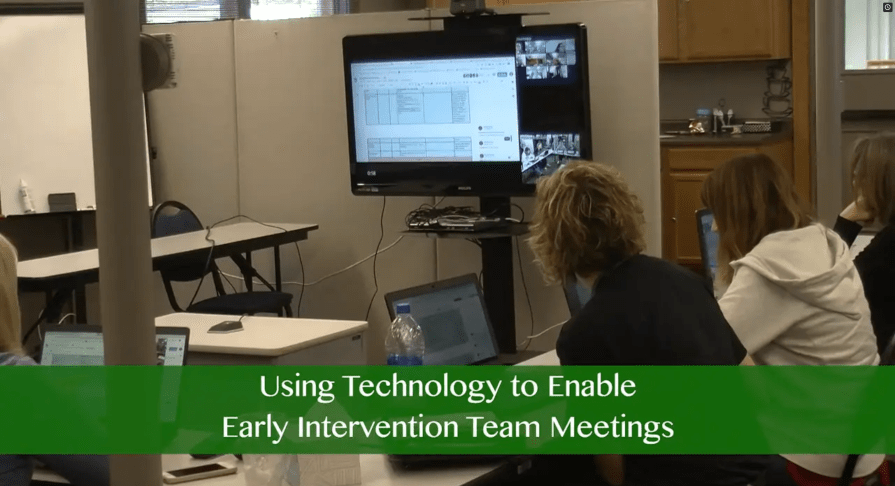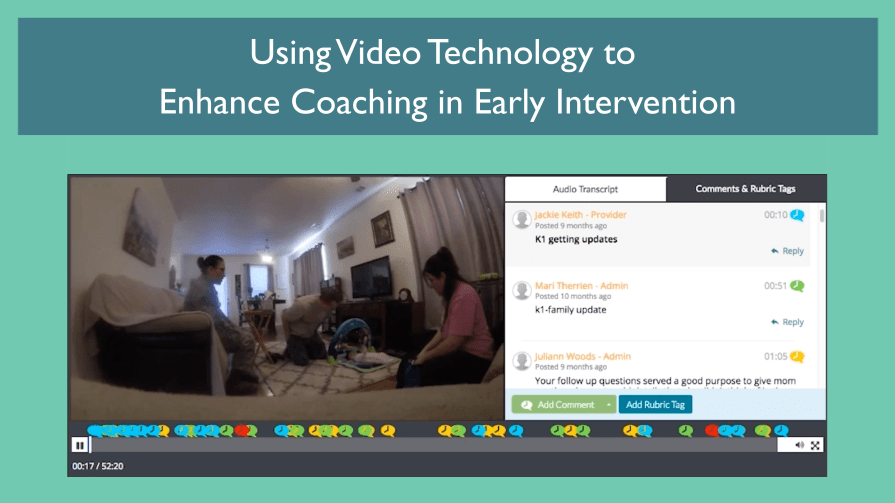Videos in the Early Intervention Perspectives library share information on the roles of families and team members as participants and partners in the early intervention process. Family members, providers, service coordinators, and administrators discuss FGRBI and coaching in their early intervention services and supports.

Afton Explains Coaching (3:27)
Afton shares her perspectives and describes how she uses FGRBI coaching frameworks in early intervention to support families and children as a physical therapist and early intervention team member. She shares the coaching strategies she finds beneficial to engaging families in the planning and decision-making process that helps to individualize the strategies and routines for Chloe that support her functional targets and the unique interests and preferences of the family.

Using the SS-OO-PP-RR: Guiding Home Visiting during the COVID-19 Pandemic (13:29)
In this video, mobile coaching using the SS-OO-PP-RR framework for guiding home visits is discussed. Led by Larry Edelman, Jenny Seuntjens, and Juliann Woods address the importance of supporting families during the COVID-19 pandemic.

Using Technology to Enable Early Intervention Team Meetings (6:04)
This video illustrates how Iowa’s Green Hills Area Education Agency uses various technology tools to facilitate their team meetings.

Families Talk About the Toy Bag (2:00)
Brandon’s parents discuss the benefits of using their own toys and materials for Brandon’s play, rather than toys brought in by an early intervention provider.

A Parent Talks about Iowa’s Early ACCESS Program (3:46)
A parent discusses the features of early intervention that have been so helpful to her family.

Setting the Stage for FGRBI – The role of the service coordinator (4:16)
Service coordinators play a vital role in supporting families in Early ACCESS. Watch as some of Iowa’s service coordinators describe how they set the stage for families beginning intervention by describing FGRBI and by supporting families to identify key routines and priorities.

An Early Interventionist Talks about Making the Shift to the Coaching Model (2:00)
An Early ACCESS occupational therapist talks about her participation in the Iowa Distance Mentoring Model, how she made the shift to using a coaching model, and what she likes about using it.

An Early Interventionist Talks about Using Video to Reflect on Early Intervention Practices (0:57)
An Early ACCESS occupational therapist talks about her participation in the Iowa Distance Mentoring Model and how valuable it has been to use video to record, reflect on, and improve her early intervention practices.

Supporting Children by Improving Family Outcomes (13:19)
All programs that serve young children and their families can improve outcomes for children by making a difference for their families. This video describes the importance of supporting families, collecting data on family outcomes, and using the data to improve the program. Using the family data collected by the U.S. Department of Education’s Office of Special Education’s Part C/Early Intervention Program as an example, this video highlights how three families who received early intervention benefited from support to their family. This video is a companion to the video Child Outcomes: Step-By-Step.

Using Video Technology to Enhance Coaching in Early Intervention (6:37)
This video illustrates a pilot project in New Mexico in which early intervention practitioners video record their home visits, post the videos to a private video sharing and collaboration platform, and receive coaching on their application of new practices.

A Family Guide To Early ACCESS (6:53)
This video was created with families in mind and describes what Early ACCESS services look like using Family Guided Routines Based Intervention (FGRBI) and Caregiver Coaching.
